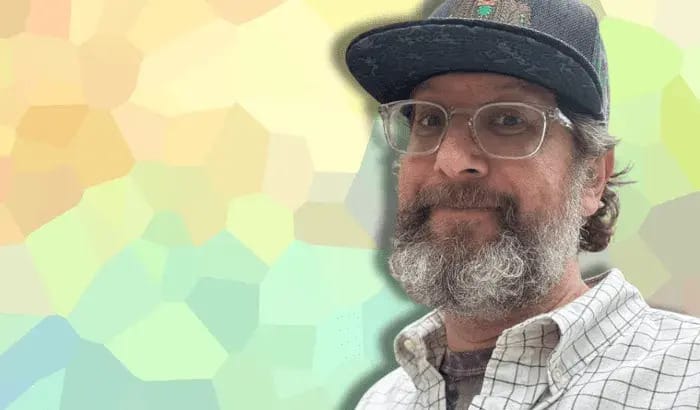This is… Psychedelic State(s) of America

Welcome to the new PSA
The Rundown
Founder’s Note
Happy Monday! Welcome to Psychedelic State(s) of America’s newly-relaunched Monday Newsletter - The Psychedelic State(s) of the Union.
If you’re reading this - first and foremost: thank you for your support!
Psychedelic State(s) of America was founded on a simple premise: democratize psychedelic journalism and in turn fulfill the unmet needs of the increasingly psychedelic-curious American electorate.
You might not know it (yet) - but the political arm of the psychedelic renaissance is one of the most fascinatingly diverse and consequential political movements of the 21st century on a global scale.
Here at PSA media, our goal is to set a new standard for truly independent psychedelic journalism: for the people, by the people.
Through PSA’s Advocacy Spotlight Initiative interviews, dogged investigative reporting in partnership with leading psychedelic media organizations, and broad-ranging media and syndication partnerships with the best and brightest independent voices from across the global psychedelic community — Team PSA is already raising the bar for psychedelic journalism from coast to coast and far beyond.
We’re also a fiscally-sponsored nonprofit news organization thanks to our friends at The Alternative Newsweekly Foundation and are actively raising money to support PSA’s core operational procedures and future growth.
So, if you support our vision — consider donating to The PSA Media Fund today!
Until next time,
Jack Gorsline

PSA Media Founder Jack Gorsline
"Abu, why are you smiling like that?"
How a seventy-one-year-old grandfather microdosed his way back to wonder.
By Christine Divine

By Christine Divine
At seventy-one, Omar Saleem no longer needed answers. He wanted memory, wonder, and a doorway back to joy.
It was a Wednesday in Jackson Heights. Zayan, his grandson, was obsessed with trains and knock-knock jokes. He liked his parathas soft—no spice, just ghee and a little salt. Omar pressed the dough gently, the way his mother had taught him, then flipped it with a practiced flick of the wrist.
Omar had lost both of his siblings to COVID in 2022. One in Karachi. One in Kew Gardens. There were no proper funerals. He stopped writing poetry. Stopped going to the mosque. His back ached constantly, but doctors could never explain it in a way that helped.
He heard about mushrooms for the first time from a younger friend in his walking group.
“It’s not really about getting high,” the friend said. “It’s more about making a little space.”
Omar asked his friend to pick some up. When they arrived, he placed the capsules in a turmeric tin near the front of the cupboard, beside unopened tea. For weeks, he didn’t touch them. But that Wednesday, after Zayan left for school, he tossed one back with some chai. Then he sat on his prayer rug, just to breathe.
At first, he felt only the familiar hollow sensation he had come to know. Then, out of nowhere, he heard his brother’s laugh. Obnoxious and joyful, echoing through the narrow hallways of their childhood home.
“I didn’t cry when he died,” Omar told me. “But when I remembered his laugh, I cried for hours. I think I just needed permission.”
He began microdosing every few days. He would walk through Travers Park, listening to Nusrat Fateh Ali Khan on his headphones, watching the trees move in the breeze. It felt like the world had always been this textured, and he was only now beginning to see it.
He even started writing poetry again—couplets, always in Urdu. Whispered under his breath, they often made him chuckle, as if he had surprised himself.
The mushrooms did not fix his grief. But they gave it a shape. On the days he microdosed, he found himself speaking more gently. He noticed how his wife still hummed when she kneaded dough. He remembered what it was like to feel young.
His microdosing days became sacred. He paired them with walks, with music, with the poetry of Rumi and Ghalib. Once, he stood in the rain without an umbrella, and jumped in a few puddles.
“People think old age is for waiting,” he said. “I don’t want to wait. I just don’t have that kind of time.”
One afternoon he sat beside Zayan, who was building a subway out of shoeboxes.
“Abu,” the boy said, “why are you smiling like that?”
Omar did not have an answer. Not one that made sense to a child. But in his mind, he thought, because my hollow chest is no longer the only thing in the room.
The capsules are still tucked in the turmeric tin. He takes them intentionally. Never when he is flooded by emotion. Never when he is rushed. Only when he is ready to listen.
The other day, Zayan found one of his poems and asked what it meant. Omar smiled.
“It means I love you in a way I am still learning how to say.”
Then they made parathas. This time, with a little spice.
About the Author:
Christine Divine is a New York City-based artist and systems thinker restoring human connection through story, performance, and political philosophy. Holding an MBA and a Master’s in Cultural Studies, she examines how education, media, and power shape the collective imagination.
Her art invites us to ask questions—to feel joy as resistance, and to find strength in vulnerability.
Christine has spent a decade in marketing and communications across nonprofit, corporate, government and education sectors. Now an independent writer, she writes for humans, not algorithms. Her work has appeared in Lucid News, The Other Magazine, and (soon) DoubleBlind Magazine.
Find her on Instagram @thechristinedivine, on LinkedIn, at christinedivine.org, and through her podcast Renaissance Woman—a community for critical thought and curiosity.

PSA Profiles
PSA Profiles: Exploring Psychedelic Intersections Of Addiction, Passion, And Community
A “quirky brand of integration wisdom” with Tam Integration founder Daniel Shankin
By Jack Gorsline

Pictured: Tam Integration founder Daniel Shankin
For two decades, Daniel Shankin has dedicated his professional life to the pursuit of personal growth and healing. As the founder of Tam Integration, an evolution of his extensive experience as a meditation teacher and leadership coach, he has created a space for people seeking profound transformation. Shankin's work offers support to those on a journey of self-development, whether they choose to engage with "sacraments and medicines" or not.
A New England resident who enjoys reading sci-fi and fantasy with his eldest child, Shankin finds inspiration in the works of authors like Isaac Asimov and Philip K. Dick, believing they tapped into levels of consciousness that can be accessed through powerful psychedelics. Also a musician in his spare time, Shankin's diverse interests and decades of professional experience provide a unique perspective on the intersection of personal passions, professional purpose, and the mysteries of the mind. We asked him about all of that and more …
JG: When and why did you first become interested in psychedelics?
DS: I was young, probably too young. I started smoking pot in high school and listening to my parents’ hippie vinyl. The Beatles made it look really good. They made a really good case to Turn off your mind, relax and float downstream. As a disaffected teen in a boring suburb, psychedelics were a trustworthy way to have an evening that was interesting, insightful, enjoyable, and community-building.
Psychedelics had this added benefit of being a truth serum, of sorts. We saw that our defense mechanisms were lowered, and we were more honest and connected with ourselves and each other. Even though we were wild kids, we were thoughtful and working to make the best choices that we knew how. We made a lot of mistakes, and hell, I still do. But I learn from them, eventually. We can all have breakthroughs.
One such breakthrough happened when I was 24. I was at a music festival, at the Gorge, and had an experience where the LSD told me that I needed to stop drinking. I started drinking young, and it wasn’t doing me any good. People had suggested that I slow down or stop, but to no avail. It wasn’t until I had this bold experience that showed me in no uncertain terms the results of my actions that I was able to put down the spirits in favor of spirit.
What’s the origin story of Tam Integration?
As I sobered up, I recognized that I was in need of some pretty deep healing and personal growth. I had a copy of “Be Here Now” and had already been practicing meditation for some time. This was a call to make a deeper commitment to my practice and to a life of service.
As time progressed, I moved into coaching. Coaching is awesome because if the conditions are right, it becomes a shared state of expansive awareness between you and your client. I found myself working with people integrating a wide variety of spiritual experiences, and psychedelics was just part of that. Over time, this part of the practice just took over.
In 2018, I started to offer public psychedelic integration circles. We needed a name for them, and at the time, I was living in the shade of Mt. Tamalpais in Marin County. It was a special place for me, and also called to mind that old zen/psychedelic piece of wisdom, First there is a mountain, then there is no mountain, then there is. The circles were a success, and as the community grew so did the offerings. As people got comfortable with virtual meetings, it enabled us to share our quirky brand of integration wisdom with people from all over the world. The rest is history.

PSA Media NewsWire Highlights

Psychedelic Vantage
Check out to Psychedelic Vantage’s latest episode, “Advancing Innovation in Mental Health” featuring Compass Pathways CEO Kabir Nath

Psychedelic Brain Science
Listen to Psychedelic Brain Science Podcast Founder Dr. Alaina Jaster’s recent interview with Michigan Psychedelic Society Founder Julie Barron and Michigan State Rep. Mike McFall

Lucid News x PSA
A proposed bill now being considered by the New York State Assembly would reform criminal penalties against psilocybin under state law and create a regulated public-health framework for dispensing psilocybin to adults by licensed providers for medical use.

The Secret Wilderness Podcast
Hosted by Alex Determing, Founder of The Parable Foundation, The Secret Wilderness Podcast features in-depth anonymous, remarkably honest accounts of psychedelic therapy.
Support Psychedelic State(s) of America
Want to know how you can support the new standard for independent psychedelic journalism? Read below for how you can support and/or get involved.

Subscribe to PSA
Subscribe to PSA across all our Channels

Work with PSA
Learn more about Psychedelic State(s) of America’s Partnership and Syndication Programs - powered by The Psychedelic Writers Guild
Until next time,
The Psychedelic State(s) of America Team

